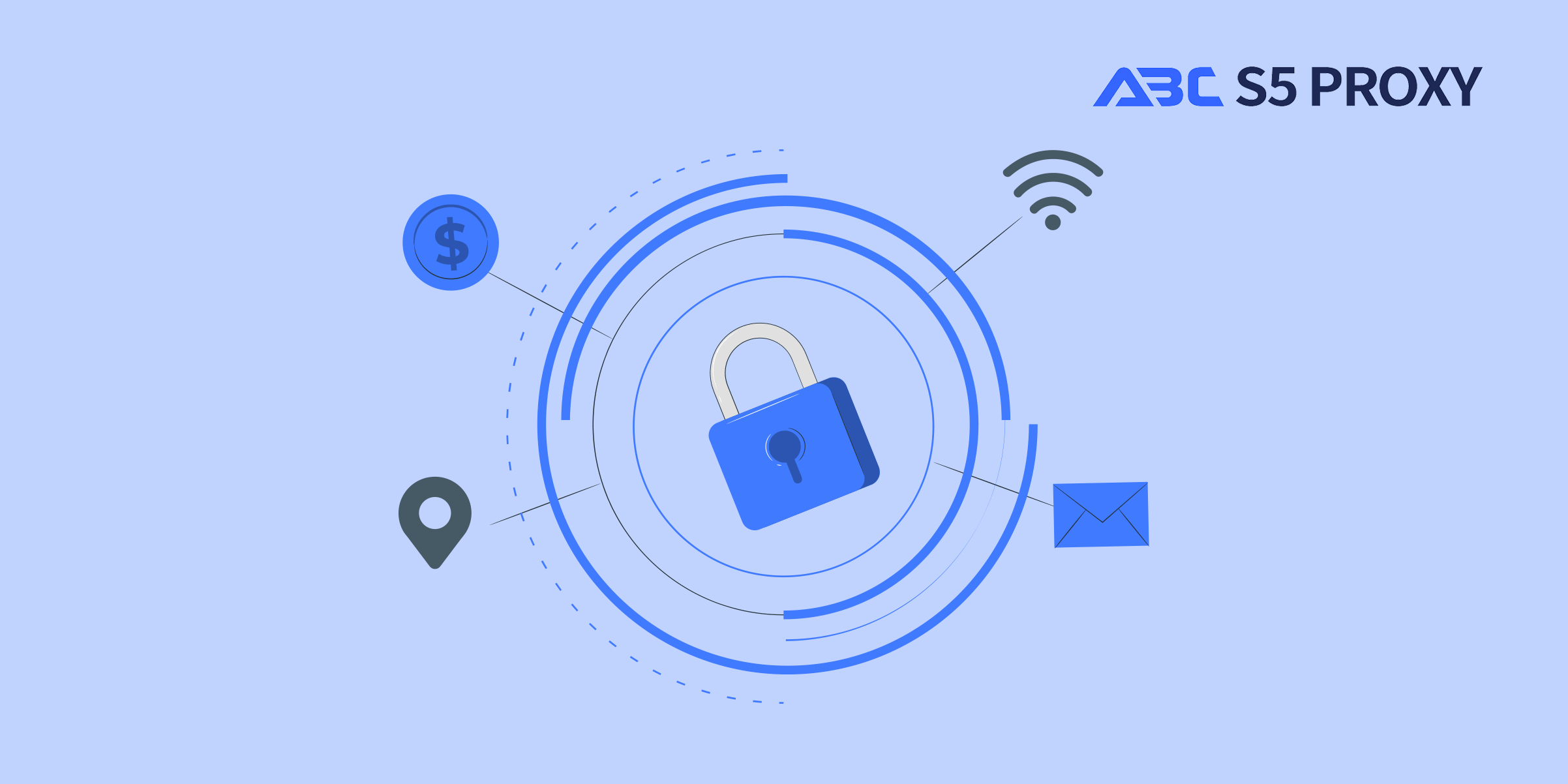Residential Proxies
Allowlisted 200M+ IPs from real ISP. Managed/obtained proxies via dashboard.

Proxies Services
Residential Proxies
Allowlisted 200M+ IPs from real ISP. Managed/obtained proxies via dashboard.
Residential (Socks5) Proxies
Over 200 million real IPs in 190+ locations,
Unlimited Residential Proxies
Unlimited use of IP and Traffic, AI Intelligent Rotating Residential Proxies
Static Residential proxies
Long-lasting dedicated proxy, non-rotating residential proxy
Dedicated Datacenter Proxies
Use stable, fast, and furious 700K+ datacenter IPs worldwide.
Mobile Proxies
Dive into a 10M+ ethically-sourced mobile lP pool with 160+ locations and 700+ ASNs.
Scrapers
Collection of public structured data from all websites
Proxies
Residential Proxies
Allowlisted 200M+ IPs from real ISP. Managed/obtained proxies via dashboard.
Starts from
$0.6/ GB
Residential (Socks5) Proxies
Over 200 million real IPs in 190+ locations,
Starts from
$0.03/ IP
Unlimited Residential Proxies
Unlimited use of IP and Traffic, AI Intelligent Rotating Residential Proxies
Starts from
$1816/ MONTH
Rotating ISP Proxies
ABCProxy's Rotating ISP Proxies guarantee long session time.
Starts from
$0.4/ GB
Static Residential proxies
Long-lasting dedicated proxy, non-rotating residential proxy
Starts from
$4.5/MONTH
Dedicated Datacenter Proxies
Use stable, fast, and furious 700K+ datacenter IPs worldwide.
Starts from
$4.5/MONTH
Mobile Proxies
Allowlisted 200M+ IPs from real ISP. Managed/obtained proxies via dashboard.
Starts from
$1.2/ GB
Scrapers
Web Unblocker
Simulate real user behavior to over-come anti-bot detection
Starts from
$1.2/GB
Serp API
Get real-time search engine data With SERP API
Starts from
$0.3/1K results
Scraping Browser
Scale scraping browsers with built-inunblocking and hosting
Starts from
$2.5/GB
Documentation
All features, parameters, and integration details, backed by code samples in every coding language.
TOOLS
Resources
Addons
ABCProxy Extension for Chrome
Free Chrome proxy manager extension that works with any proxy provider.
ABCProxy Extension for Firefox
Free Firefox proxy manager extension that works with any proxy provider.
Proxy Manager
Manage all proxies using APM interface
Proxy Checker
Free online proxy checker analyzing health, type, and country.
Proxies
AI Developmen
Acquire large-scale multimodal web data for machine learning
Sales & E-commerce
Collect pricing data on every product acrossthe web to get and maintain a competitive advantage
Threat Intelligence
Get real-time data and access multiple geo-locations around the world.
Copyright Infringement Monitoring
Find and gather all the evidence to stop copyright infringements.
Social Media for Marketing
Dominate your industry space on social media with smarter campaigns, anticipate the next big trends
Travel Fare Aggregation
Get real-time data and access multiple geo-locations around the world.
By Use Case
English
繁體中文
Русский
Indonesia
Português
Español
بالعربية

Title: The Legalities of Using Proxies: What You Need to Know
In today's digital age, the use of proxies has become increasingly popular among individuals and businesses seeking to protect their online privacy, access geo-restricted content, or improve their online security. However, the legality of using proxies is a topic of debate and confusion for many. In this blog post, we will explore the legalities of using proxies and provide you with the information you need to know.
First and foremost, it is important to understand what proxies are and how they work. A proxy server acts as an intermediary between your device and the internet. When you connect to the internet through a proxy server, your real IP address is masked, and the websites you visit only see the IP address of the proxy server. This allows you to browse the web anonymously and access content that may be restricted in your region.
· China
· Iran
· North Korea
The legality of using proxies varies depending on the country you are in and the specific activities you are engaging in. In many countries, using proxies for legitimate purposes, such as protecting your privacy or accessing geo-restricted content, is perfectly legal. However, the use of proxies for illegal activities, such as hacking, fraud, or copyright infringement, is strictly prohibited and can lead to serious legal consequences.
In the United States, for example, there are no specific laws that prohibit the use of proxies for legitimate purposes. However, using proxies to engage in illegal activities is considered a violation of federal laws, such as the Computer Fraud and Abuse Act. This law prohibits unauthorized access to computer systems and networks, which includes using proxies to bypass security measures or commit cybercrimes.
When it comes to businesses using proxies, the legalities can become more complex. Many businesses use proxies to protect their sensitive data, conduct market research, or monitor their online reputation. However, businesses must ensure that their use of proxies complies with data protection laws, such as the General Data Protection Regulation (GDPR) in the EU or the California Consumer Privacy Act (CCPA) in the US.
It is also worth noting that some websites and online services explicitly prohibit the use of proxies in their terms of service. By using proxies to circumvent these restrictions, you may be violating the terms of service and risking the suspension or termination of your account.
In conclusion, the legality of using proxies depends on how you use them and the laws of your jurisdiction. As long as you use proxies for legitimate purposes and comply with applicable laws and regulations, there is generally no issue with using them. However, it is essential to be aware of the potential legal risks and consequences of using proxies for illicit activities. If in doubt, always seek legal advice to ensure that your use of proxies is lawful and ethical.
In summary, while using proxies can offer many benefits in terms of privacy, security, and access to restricted content, it is crucial to use them responsibly and within the bounds of the law. By understanding the legalities of using proxies and staying informed about the laws in your jurisdiction, you can enjoy the advantages of proxies while avoiding any potential legal pitfalls.
Featured Posts
Popular Products
Residential Proxies
Allowlisted 200M+ IPs from real ISP. Managed/obtained proxies via dashboard.
Residential (Socks5) Proxies
Over 200 million real IPs in 190+ locations,
Unlimited Residential Proxies
Use stable, fast, and furious 700K+ datacenter IPs worldwide.
Rotating ISP Proxies
ABCProxy's Rotating ISP Proxies guarantee long session time.
Residential (Socks5) Proxies
Long-lasting dedicated proxy, non-rotating residential proxy
Dedicated Datacenter Proxies
Use stable, fast, and furious 700K+ datacenter IPs worldwide.
Web Unblocker
View content as a real user with the help of ABC proxy's dynamic fingerprinting technology.
Related articles

Unlock the Best Proxies for Enhanced Performance on Yahoo Apps
Looking for the best proxies for Yahoo apps? Discover top proxy solutions to enhance your Yahoo app usage. Optimize your privacy and access with reliable proxies.

Scraping Jobs from the Internet: A Comprehensive Guide
Looking to scrape jobs from the internet? Learn how to efficiently gather job listings online. Find out how to automate job searching easily.

Unlocking Hidden Gems: Phone Number Scraping on Craigslist Revealed
Looking to scrape Craigslist for phone numbers? Learn how to efficiently extract contact information from Craigslist listings with this comprehensive guide. Maximize your outreach and save time by accessing phone numbers directly through web scraping techniques. Get started today!